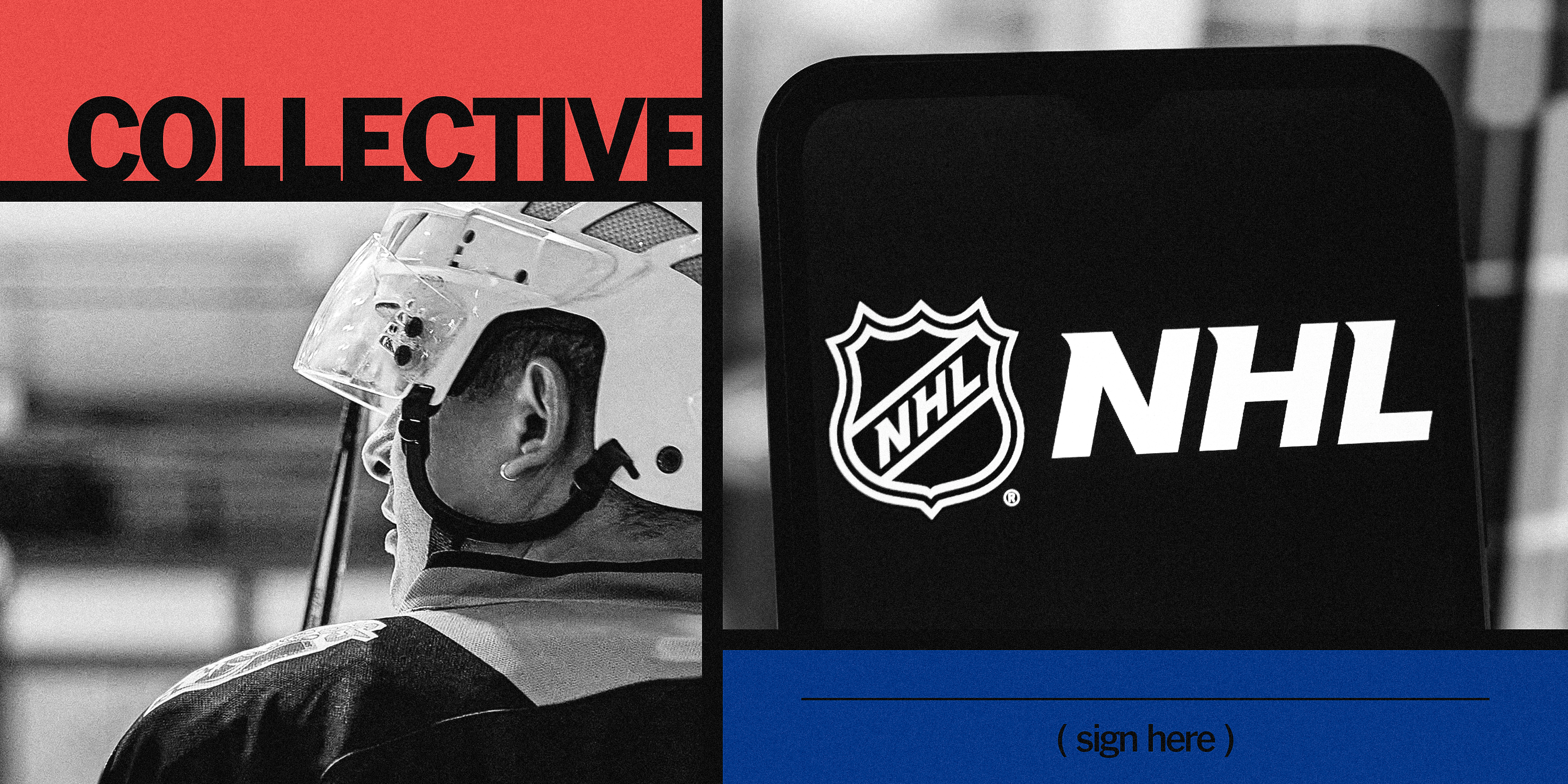NHL players react to new CBA terms, from 'slight' concessions to 'contentious' changes

The NHL's new four-year collective bargaining agreement, ratified with minimal conflict, signals a period of stability that may influence betting outcomes. Punters could consider the increased regular season games and playoff fund enhancements impacting player performance and team dynamics, potentially leading to favorable betting conditions for the teams capitalizing on these changes. The highlight should include a possible sports betting outcome based on the news, which means what influence might it have for punters when betting.
For a league with several lengthy work stoppages in its not-too-distant past, the NHL is now entering an unprecedented time of labor peace between owners and players. The speed and ease of this week’s ratification of a new four-year collective bargaining agreement signaled as much. Taking effect in September 2026 and extending through the 2029-30 season, the new CBA was passed by a majority vote from both the NHL’s Board of Governors and the NHL Players’ Association, more than 14 months before the current agreement expires.
By all counts, negotiations were friendlier than anyone involved could remember. Advertisement “The predictability of things goes a long way, I think, for everyone in the sport,” said John Tavares, who serves as the Toronto Maple Leafs’ alternate representative on the NHLPA executive board and was part of the NHLPA negotiating committee for the 2012-13 CBA following the owners’ lockout. “It’s great to have that partnership and how collaborative it’s been, which has been very different from 2012.”
The league seems to be on solid financial ground, with richer television deals, strong revenue growth and team valuations on the rise, and a salary cap projected out three years in advance. The most notable changes in the revamped CBA include a longer regular season; a shorter preseason; a playoff salary cap system; and a significant increase to the players’ playoff fund.
The deal also does away with player dress code and guarantees NHL players’ participation in the 2030 Winter Olympics in the French Alps. “[NHLPA executive director] Marty Walsh and our team did an awesome job with the process,” said Marcus Foligno, the Minnesota Wild’s player representative. “I think the league is in a great spot and both sides see that. So it’s great to get a head start on negotiations and lock in (four) years.”
But the sprawling union, encompassing every member of every current roster, is not a monolith. So how do others feel about the deal and its terms? We gauged the opinions of 10 players around the league, with some requesting anonymity in exchange for full candor. Several common observations emerged, from noteworthy wins to lingering concerns over concessions. Early reviews were on the positive side, though not everyone was wholly pleased with the final document, which has yet to be publicly released. But even those with dissenting opinions agreed on one thing: The path here could’ve been far more contentious.
Advertisement As a veteran defenseman said, “I’ve had a lot of these in my career. They’re not fun. This one wasn’t as bad.” The lockout fear loomed
Over the last 33 years, the NHL has seen four major work stoppages. A historic players’ strike interrupted the 1991-92 season, while an owner-initiated lockout cut the 1994-95 season to only 48 games. More recently, lockouts cancelled the entire 2004-05 season and shortened the 2012-13 season, also to only 48 games. Even though negotiations were never characterized as anything other than amiable — in a release announcing the latest CBA, league commissioner Gary Bettman said that “the partnership between the players’ association and the league is stronger than it ever has been” — the specter of a potential work stoppage loomed in players’ minds throughout negotiations.
“What can we do? There can’t be another lockout,” the veteran defenseman said. “Those don’t go our way. It’s better to get it done.” Added a Western Conference forward, “I don’t think a major labor stoppage would benefit anyone. Four years seems like a good deal and re-evaluate then.” Of the 1,023 players who played in the NHL last season, only 108 were around for the last lockout in 2012-13. But experience proved influential for some, even if a player hadn’t reached the league yet.
“I’m glad it didn’t get ugly,” an Eastern Conference goalie said. “Some of those (CBA talks) I heard about from older guys — that sounded brutal.”
More games, mixed opinions
Beginning in the 2026-27 regular season, the NHL will feature an 84-game schedule intended to start the last week of September and end with the awarding of the Stanley Cup in late June. “By far the most contentious topic in our negotiations,” a second Western Conference forward said, citing particular “concern” for top players who might be overtaxed with additional in-season events such as the NHL All-Star Game, the Winter Olympics and the 4 Nations Face-Off.
Advertisement Both additional games will be against divisional opponents. To accommodate for the increase, training camp will be shortened from 21 days to 13 for veterans and 18 for rookies. Teams will also be capped at four preseason games, and players with 100 or more career NHL games can only play in two of them.
“I don’t think you’ll get too many veterans upset about losing those preseason games, but if I’m a younger player I don’t like it,” a Western Conference defenseman said. “When you’re not established, those preseason games can make all the difference. You get those reps to show coaches what you bring. I know those games helped me when I was younger.”
It’s no surprise that most players were in favor of securing a contractually mandated shorter training camp. But, some wondered, at what cost? “I don’t like more games,” the veteran defenseman said. “I think the season should be shorter. We play too long. The schedule has too many times with three games in four days. But, you know, it’s more money for everyone. I think that’s what everyone wants.”
Changing contract terms
Under the current CBA, players can sign with their current team for a maximum of eight years, and with a new team for a maximum of seven years. Beginning in 2026-27 those limits will be lowered to seven and six years, respectively. “As players, we feel (this) was maybe a slight sacrifice,” the second Western Conference forward said. “However, with the increasing cap and unknown where it will go long term, we felt as though we may see less guys taking the eight-year contracts. This allows players to continue to maximize their profits throughout their prime.”
Another player expressed concern for the contract length changes. “Somebody needs to explain that to me,” an Eastern Conference defenseman said. “I don’t know why we’re giving them (owners) back that year, but maybe it’s different when some players have never had that really long deal.
Advertisement “I think the thing players who sign longer deals probably want is a say in being traded. That’s been big for me — having that control. I didn’t hear if they (owners) wanted to take that out, but it’s something I think we should always have — just like they (owners) aren’t ever giving up the cap.”
‘A massive win’
Players were pleased with the scheduled increases to the playoff fund, which is divided (at the discretion of each locker room’s leadership group) amongst those who participate in the postseason. Not only will the fund significantly jump from its current level of $24 million, but also it will be paid off-share and not from the hockey-related revenue fund that is split 50-50 among players and the league.
“Increased playoff fund is a massive win for the players,” a second Western Conference forward said. “Guys mentioned when they went the distance they generally weren’t bringing home much money relative to all the work they did and the expenses playoffs can cost for family and friends going to games.
“It’s only appropriate (that) the rising revenues and salary cap saw an increase in the player fund.” The total playoff fund will reach $34 million in 2026-27 and increase by $2 million each year of the new CBA, ending at $40 million in 2029-30.
But these numbers weren’t on every player’s mind in negotiations. “I never think about pay in the playoffs,” a Stanley Cup-winning forward said. “More money is always better, but when you’re in the playoffs you don’t think about money. Maybe we should.”
Sharing expansion fees? One of the early perceived losses for the players in this negotiation was the fact that they still won’t receive a share of any future expansion fees.
“I wish we could get some of the expansion money,” the veteran defenseman said. “They say it’s not (hockey related revenue) or whatever, but they can’t have those teams without players, right?” Advertisement The Vegas Golden Knights’ expansion fee was $500 million in 2017. Seattle paid $650 million to join the NHL in 2021, and a recent report from Sportico indicated that future expansion fees could reach $2 billion. That would break down to $62.5 million for each of the current 32 owners — and none for players.
“It’s just one of those things that it’s been that way,” the Eastern Conference goalie said. “But that doesn’t mean it should.” Despite the players’ strong opinions, the second Western Conference forward said that NHL owners “put their heels down on not moving from their current position with this.” But the issue can always be reopened in the next round of CBA talks — assuming the league hasn’t already finished expanding by then.
“I think new teams need players,” the Cup-winning forward said. “Fans don’t come to see owners watch the NHL. The owners made big money last time. Next time players should too.”
Speed of negotiations
The formal bargaining process for the new CBA, which replaces the old version from 2013 with a four-year extension in 2020, began in April. The final stage of ratification was wrapped up before July. “It seemed like we didn’t hear a lot and then it was done,” the Eastern Conference goalie said.
“Obviously, you trust your team rep and the people running the PA to do what’s best. That’s their job. I don’t know what I expected — more give and take, maybe?” Added the Western Conference defenseman, “I did think it would take longer to get a deal. I wouldn’t say I’m relieved; nobody wants a lockout, especially the players. It went fast. I don’t know if that’s good or bad. The people doing the talking on our end seem to really like the deal for the players.”
The veteran defenseman offered a different perspective. “I don’t know how many players pay close attention until the very end,” he said. “That’s just how it has always gone — a small group is doing the talking and then we find out and we get to vote. This time did go fast. Again, I’ve seen it drag out more than once and how did that go for us? So whatever.”
And more — Peter Baugh, Chris Johnston, Michael Russo and Eric Stephens contributed reporting. (Illustration: Demetrius Robinson / The Athletic ; Photos: Thomas Fuller / SOPA Images/Sipa USA via AP, istock)
A sampling of opinion from around the league found players in favor of the changes, even if not with total enthusiasm.
The Athletic Football NHLhttps://betarena.featureos.app/
https://www.betarena.com
https://betarena.com/category/betting-tips/
https://github.com/Betarena/official-documents/blob/main/privacy-policy.md
[object Object]
https://github.com/Betarena/official-documents/blob/main/terms-of-service.md
https://stats.uptimerobot.com/PpY1Wu07pJ
https://betarena.featureos.app/changelog
https://twitter.com/betarenasocial
https://github.com/Betarena
https://medium.com/@betarena-project
https://discord.gg/aTwgFXkxN3
https://www.linkedin.com/company/betarena
https://t.me/betarenaen
 Theathleticuk
Theathleticuk